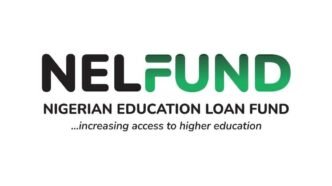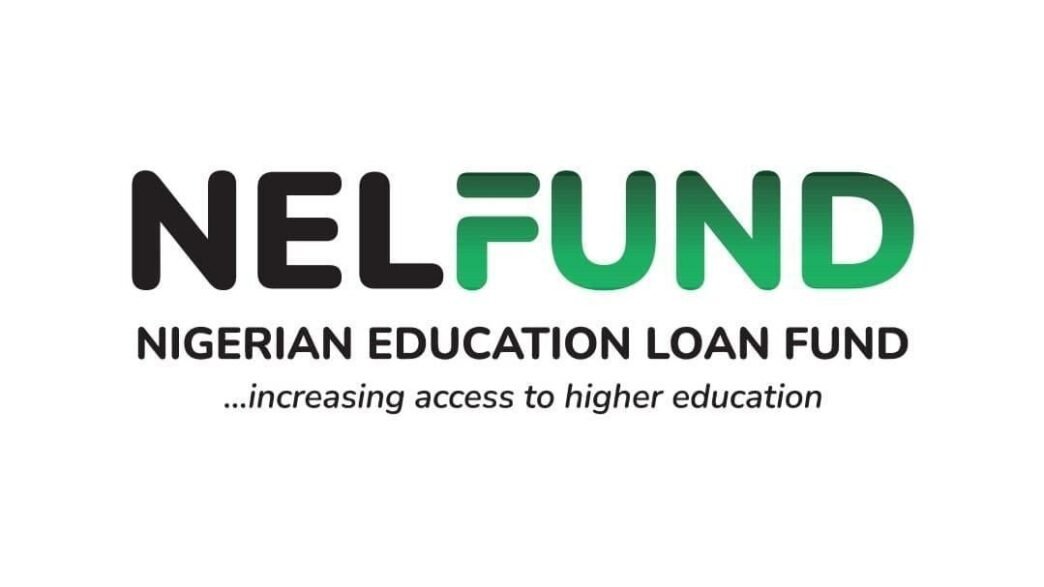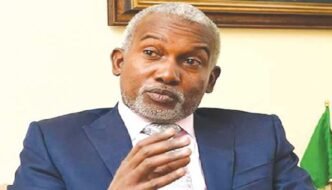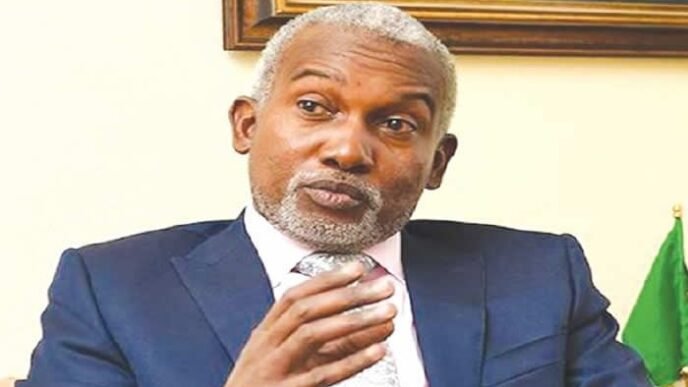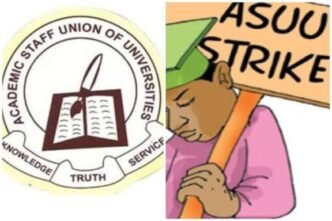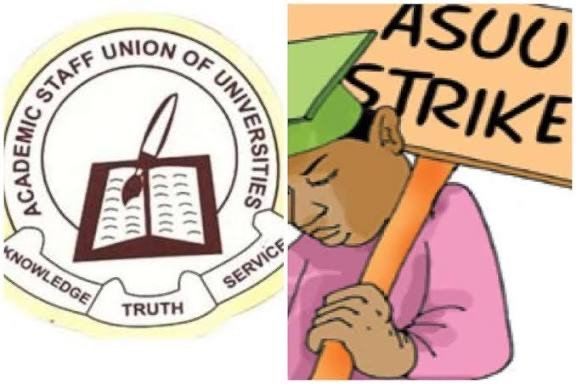Abuja, Nigeria — October 11, 2025
The Nigerian Education Loan Fund (NELFUND) has announced the final reopening of its institutional verification portal, allowing tertiary institutions yet to complete their student verification exercise one last opportunity before the commencement of the 2024/2025 education loan disbursement.
In a statement issued in Abuja on Friday by the Director of Strategic Communications, Oseyemi Oluwatuyi, the Fund said the portal would be accessible from 12:00 a.m. on Sunday, October 12, to 12:00 a.m. on Tuesday, October 14, 2025.
According to NELFUND, the short reopening period is aimed at ensuring that all eligible students are duly verified by their respective institutions as part of the ongoing loan application process for the current academic year.
Oluwatuyi emphasized that this reopening represents the final opportunity for universities, polytechnics, and colleges of education to complete their verification processes, warning that failure to meet the deadline would automatically disqualify such institutions from participating in the ongoing loan cycle.
“Institutions are strongly advised to make full use of this final opportunity. Failure to complete the verification process within the stipulated period will result in the affected institutions forfeiting participation in the current loan cycle,” she stated.
She further noted that this could “regrettably disadvantage their students, who are the ultimate beneficiaries of the loan scheme.”
Transparency and Accountability
Oluwatuyi reiterated the Fund’s commitment to equitable access to higher education, ensuring that no Nigerian student is denied financial support due to administrative lapses.
In the interest of transparency, she disclosed that NELFUND would publish a list of defaulting institutions after the verification window closes, to inform the public about which institutions failed to comply.
“In the interest of transparency and accountability, the list of defaulting institutions will be published,” she confirmed.
She added that NELFUND remains focused on building trust and fairness in the management of student loans, stressing that the institutional verification process is crucial in preventing fraud and ensuring that only eligible students receive support.
Verification: A Critical Step in the Loan Process
The institutional verification process is a mandatory step in the NELFUND loan application system, designed to authenticate students’ enrollment status, academic records, and other essential details before loan approval.
Institutions are expected to upload and verify each student’s information, ensuring accuracy and preventing cases of identity fraud, duplication, or false claims.
Oluwatuyi explained that the process forms the foundation for loan disbursement accuracy, ensuring that government resources are directed to genuine applicants.
A NELFUND official, speaking anonymously, revealed that several institutions had yet to finalize verification due to administrative delays and data upload errors.
“Despite multiple reminders and technical support, some institutions haven’t completed their verification. This reopening is the final window — and after October 14, no new uploads will be accepted,” the source said.
NELFUND’s Mission and Mandate
The Nigerian Education Loan Fund was established under the Access to Higher Education Act, 2023, signed into law by President Bola Ahmed Tinubu as part of efforts to widen access to tertiary education and empower students from low-income households.
The Fund provides interest-free loans to eligible Nigerian students in universities, polytechnics, colleges of education, and vocational institutions. The loan covers tuition and related academic expenses, helping to reduce the financial burden on students and their families.
Repayment begins only after beneficiaries secure employment after graduation, ensuring that the scheme supports education without imposing immediate financial strain.
The initiative, often referred to as the Students’ Loan Scheme, is widely seen as a milestone in Nigeria’s education reform agenda, promoting inclusion and reducing dropout rates caused by financial hardship.
Since its operational rollout in 2024, NELFUND has processed thousands of applications through its official online platform, strengthening partnerships with institutions across Nigeria.
How to Apply for the NELFUND Student Loan
Students who have been verified by their institutions can proceed to complete their loan applications online through the official NELFUND application portal:
Applicants are required to log in using their verified institutional details and complete all sections of the online form, including personal information, academic details, and financial background.
Before applying, students must ensure their school has successfully verified their enrollment and uploaded the necessary information on the NELFUND verification portal.
The Fund has also provided a student loan application guide on its website to help new applicants navigate the process efficiently.
Institutions Urged to Act Swiftly
With just 48 hours to comply, tertiary institutions across the country have been urged to act swiftly to avoid excluding their students from the ongoing loan cycle.
Oluwatuyi called on vice-chancellors, rectors, and provosts to ensure their designated verification officers are on standby throughout the reopening period.
“We have provided all the necessary technical resources and support to ensure institutions can meet this deadline. It is now up to them to ensure their students do not miss out,” she said.
NELFUND further advised students to liaise directly with their institution’s loan desk officers to confirm their verification status before proceeding with applications.
Stakeholder Reactions
The announcement has drawn mixed reactions from education stakeholders. While many commend NELFUND’s effort to ensure inclusiveness, some have called for a slightly longer reopening window.
The National Association of Nigerian Students (NANS) welcomed the move, describing it as a “progressive step” to ensure that no student is unfairly excluded.
“We commend NELFUND for reopening the portal. Institutions must seize this opportunity to ensure all students are verified. We will hold school managements accountable if their negligence causes any student to miss out,” said NANS spokesperson, Mohammed Zakari.
However, some institutions with large student populations expressed concerns that 48 hours might be insufficient to process thousands of pending verifications.
A registrar from a federal university in the South-West said, “We are working round the clock to finalize the uploads. The timeline is tight, but we appreciate the Fund for giving this final window.”
Promoting Educational Equity
NELFUND’s intervention represents one of the Federal Government’s boldest steps toward bridging the educational inequality gap in Nigeria. By providing access to interest-free loans, the Fund hopes to empower millions of students to pursue higher education without financial obstacles.
Education experts say the initiative could significantly boost Nigeria’s human capital development, enhance productivity, and reduce youth unemployment rates in the long run.
In her closing remarks, Oluwatuyi reaffirmed NELFUND’s commitment to maintaining transparency, accountability, and efficiency in managing the loan scheme.
“NELFUND is not just about financing; it is about giving every Nigerian child a fair chance at education and a better future,” she said.
Key Dates to Remember
- Portal Reopens: 12:00 a.m. on Sunday, October 12, 2025
- Portal Closes: 12:00 a.m. on Tuesday, October 14, 2025
- Application Portal: nelf.gov.ng
- Eligible Institutions: Universities, Polytechnics, Colleges of Education, and Vocational Institutions that have completed verification.
The Road Ahead
As the verification deadline approaches, NELFUND’s action underscores the importance of institutional accountability and collaboration in achieving the national goal of affordable education for all.
Once verification concludes, the Fund is expected to begin the first phase of disbursement for the 2024/2025 academic session, targeting thousands of verified students across Nigeria.
Oluwatuyi’s message to institutions was clear: failure to act now could cost their students the opportunity to benefit from one of the most transformative educational funding initiatives in Nigeria’s history.
With the final window now open, the ball is in the court of tertiary institutions to ensure their students’ futures remain secure.

